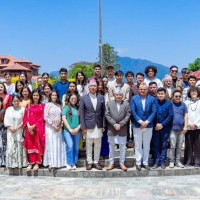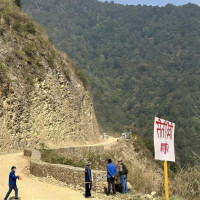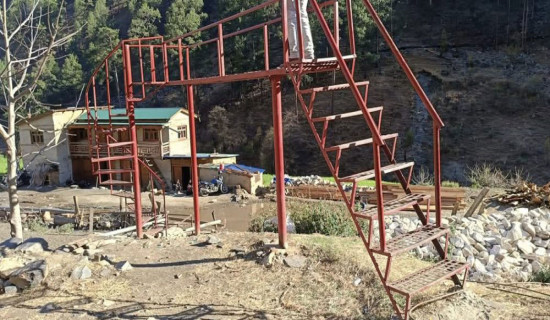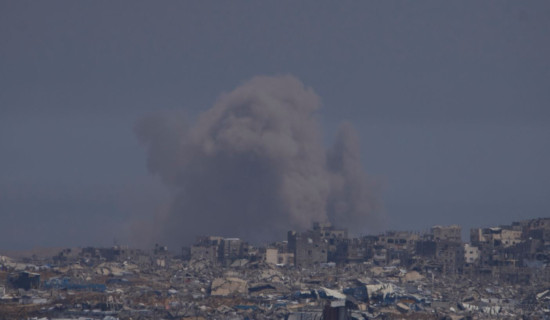- Thursday, 8 May 2025
Palestinians in razed West Bank hamlet vow to stay
Khallet Al-Dabaa, May 8: Standing in the rubble of used to be his home, Palestinian farmer Haitham Dababseh cleared stones to make space for a tent after Israeli army bulldozers destroyed his village in the occupied West Bank.
Residents of Khallet al-Dabaa and other hamlets in the West Bank's Masafer Yatta region have for years contended with violence from Israeli settlers and repeated demolitions.
But the bulldozers that descended on Khallet al-Dabaa on Monday carried out "the biggest demolition we've ever had", said Dababseh, razing to the ground the hamlet that is home to about 100 Palestinians.
Israeli forces "came here in the past, they demolished three times, four times", the 34-year-old farmer told AFP, but never entirely destroyed a hamlet this size in Masafer Yatta.
"I just have my clothes. Everything I have is under the rubble."
Behind him, his 86-year-old father struggled to move the house's former door out of the way so that they can set up their shelter.
Khallet al-Dabaa is one of several villages featured at length in the Oscar-winning documentary "No Other Land", recounting the struggles of the Palestinian residents of the area in the West Bank's south, a frequent target of settler violence and army activities.
Several of the communities shown in the documentary have experienced settler attacks or army demolitions since it won an Academy Award in March.
Several years after occupying the West Bank in 1967, the Israeli army had declared Masafer Yatta a restricted firing zone.
Israeli forces regularly demolish structures that the military authorities say were built illegally in the area, where about 1,100 Palestinians live across several hamlets.
"Enforcement authorities of the Civil Administration dismantled a number of illegal structures that were built in a closed military zone in the South Hebron Hills," the Israeli military told AFP in a statement on the Khallet al-Dabaa demolition.
"The enforcement actions were carried out after the completion of all required administrative procedures and in accordance with the enforcement priority framework previously presented to the Supreme Court," it added.
Some residents, and many of their ancestors, once lived in caves in the rocky terrain to escape the area's stifling summer heat, and built houses with stone and other materials after the Israeli firing zone designation in the 1970s.
Dababseh said he was the first member of his family to be born in a hospital and not a cave.
He lamented that the army had blocked the entry to the cave near the family home where his father and grandfather were born.
In the middle of Khallet al-Dabaa, what served as a health and community centre is now a pile of broken concrete with no walls.
A torn logbook that an aid organisation used to record residents' medical check-ups lay under dust.(AFP)



-original-thumb.jpg)


-original-thumb.jpg)









